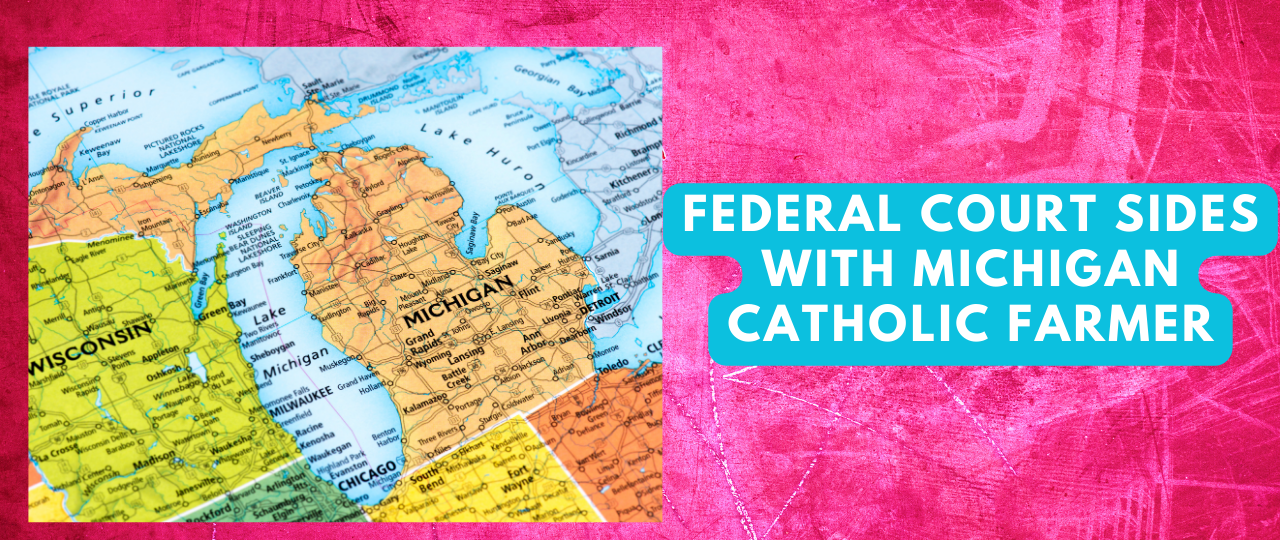A federal district court sided with a Michigan farmer on Monday, ruling that he is free to participate in a city-run farmer’s market after he was booted over his Catholic views on marriage.
Steve Tennes, who owns Country Mill Farms, was banned in 2017 from the East Lansing farmer’s market by city officials after he posted on Facebook that he follows the Catholic Church’s teachings on marriage, which includes opposing same-sex weddings at his family’s orchard.
East Lansing officials reacted by using a “discretionary system of individual assessments” to ban Tennes and his farm from participating in the seasonal market, despite Tennes never receiving any complaints from customers, his legal team said.
Tennes and his farm sued the city of East Lansing in 2017.
On Monday, U.S. District Judge Paul Maloney ruled that the city’s ban on Tennes “constituted a burden on plaintiffs’ religious beliefs.”
Tennes and his farm “were forced to choose between following their religious beliefs and a government benefit for which they were otherwise qualified,” violating his right to exercise his religion freely, Maloney ruled.
“The reason is simple: denying a person an equal share of the rights, benefits, and privileges enjoyed by other citizens because of her faith discourages religious activity,” the court said, quoting the 6th Circuit appeals court.
Tennes’ farm is also 22 miles away from East Lansing, which his legal team noted is outside of the city’s jurisdiction.
Tennes was represented by Alliance Defending Freedom (ADF), a conservative legal group.
“Tennes and Country Mill Farms are grateful for the court’s decision protecting religious liberty,” said ADF Senior Counsel Kate Anderson, who argued before the court for Tennes.
“At the same time, they are eager to mend fences with current city officials and get back to doing what Country Mill does best—as expressed in its mission statement: ‘glorifying God by facilitating family fun on the farm and feeding families,’” Anderson said.
Several high-profile cases dealing with business owners who opposed same-sex marriage on religious grounds have wound up at the Supreme Court in recent years.
In June, the Supreme Court struck down a Colorado law that would have punished a Christian graphic designer who declined to design a website for a same-sex wedding that violated her religious beliefs.
That case echoed another Supreme Court case that also came from Colorado.
In 2018, the Supreme Court ruled narrowly in favor of a Colorado baker who refused to make a wedding cake for a same-sex couple. In that case, the court reversed the Colorado Civil Rights Commission’s decision against Jack Phillips, owner of Masterpiece Cakeshop, saying the state had failed to be neutral on religion.




















